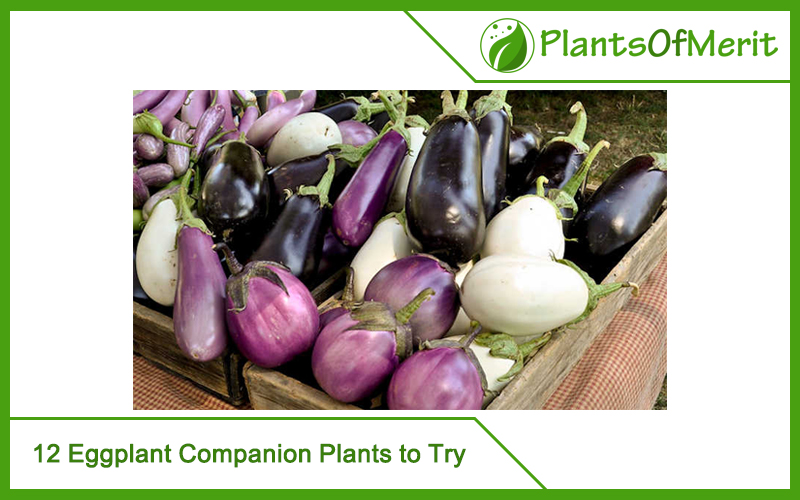There is a variety of vegetables available in the market and there are a few unique ones that people either love or hate. Eggplant is one of those. It is a hit or a miss among people. While some people enjoy the neutral, “meaty” taste and texture of the vegetable, some people have a strong aversion to this vegetable.
Eggplants are warm-weather vegetables with an elongated growing season. But, is growing eggplant an easy process? Ideally, eggplants grow better with companion plants around them, especially when you put the same care into their growing process.
The reason why companion plants are considered ideal for eggplants is that it promotes cross-pollination. They attract pollinators, which results in more fruits in the plant. However, the concept of companion plants can be a little confusing for beginners.
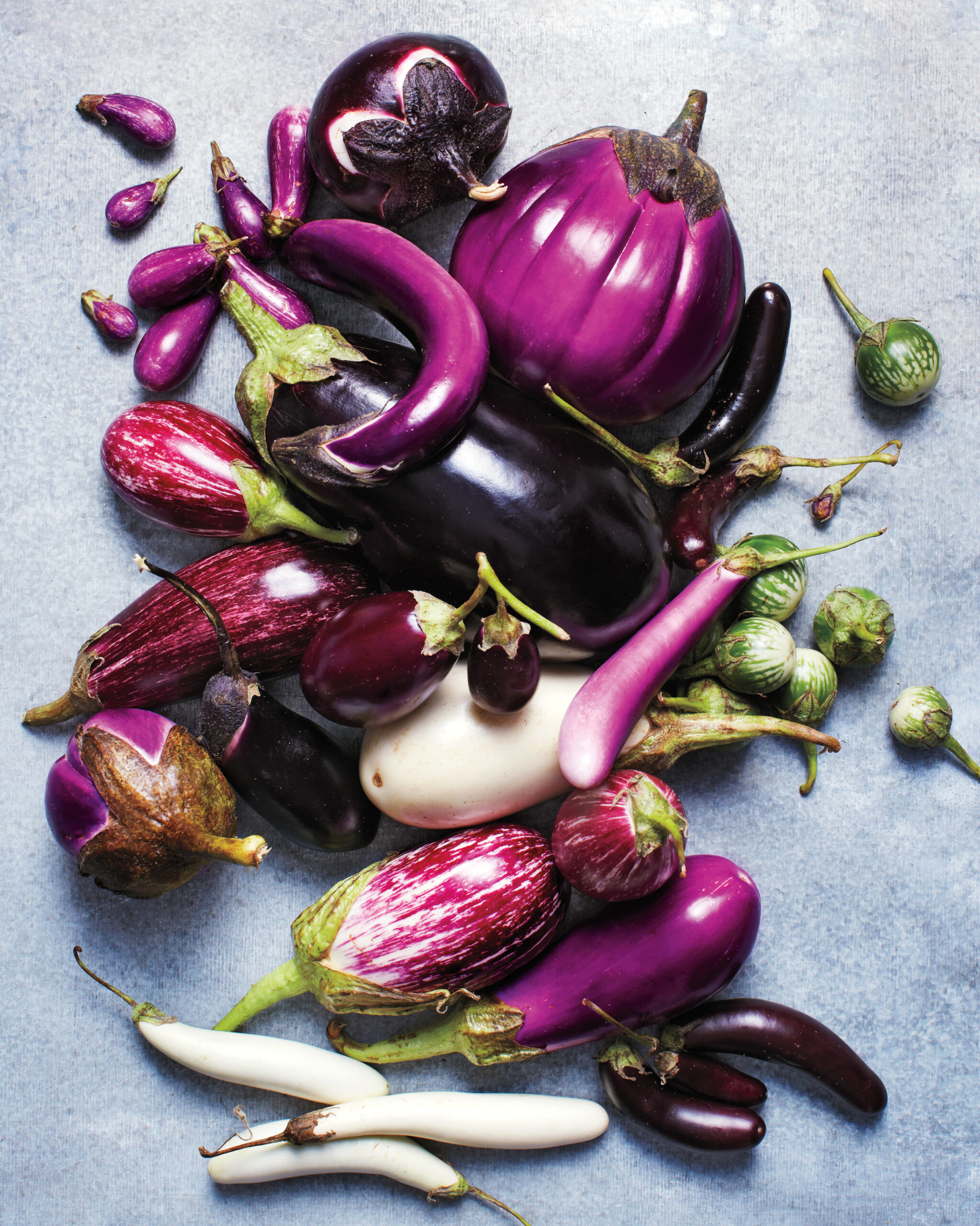
This article should give you a clear understanding of the best types of eggplant companion plants that you can consider looking into.
What is an Eggplant?
Also known as Aubergine or Brinjal in certain parts of the part, Eggplant is a warm-season vegetable. It has an oblong or elongated oval-like appearance with a deep purple color on the exterior with a spongy interior.
When cooked, the interior takes a gelatinous texture to it, making it an ideal option for vegan people who look for staple meat replacements to include in their diet. The use of eggplants is also quite prevalent in Middle Eastern cuisine like baba ganoush, etc.
Besides that, Eggplants are also quite popular in Asian cuisine, especially in countries like Thailand and China.
What is the Meaning of Companion Planting?
Unless you are familiar with the concept of advanced gardening, there are chances that you might not be familiar with the concept of companion planting. If that is the case, don’t worry because we have all the detailed insights for you.
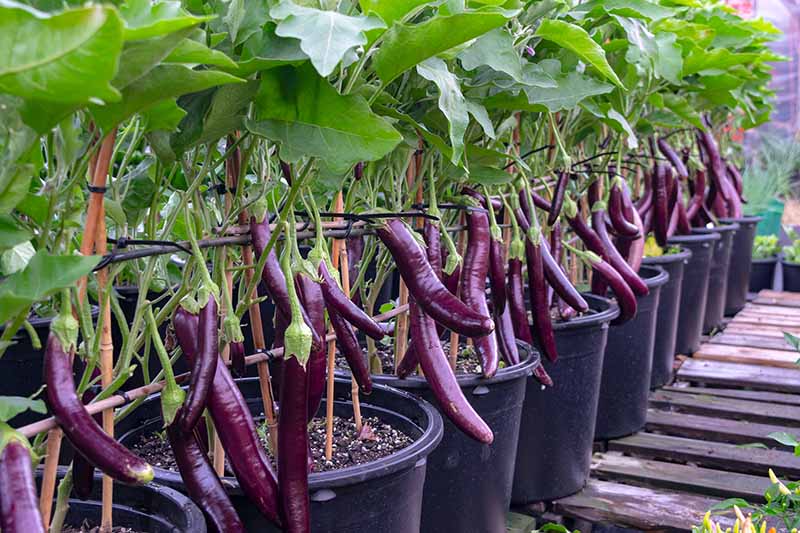
Companion plants are a gardening method that aids the growth of the more vulnerable plants and crops that are at risk of being damaged by diseases, pests, and other complications along the way.
Besides the age-old trick, the main function of the companion planting works by deterring the unnecessary growth of pests and diseases in the main plant, which is the eggplant, in this case.
Some of the companion plants also reduce the risks of weed growth around the primary plant, thereby ensuring that the nutritional needs aren’t affected in the process. Reduced nutrient competition contributes to the sustained growth of the plants without any hindrances in the process.
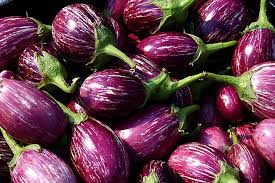
A few of the companion plants attract different species of pollinators as well, which further adds to the well-being of the primary plant that you are trying to grow. So, if you are somehow considering natural ways to expand the production from your eggplant plants, integrating good companion plants in the close vicinity can help in multiple ways.
How do Companion Plants Benefit the growth of Eggplants?
As we have mentioned before, eggplants are very sensitive plants. They attract a lot of pests around them, which is one of the primary reasons why you need some effective companion plants that will keep these complications in check.
Some of the most notable benefits of companion plants for eggplants include:
- Eliminate insects and pests
Oftentimes, when you cut open an eggplant, you will find small, white worms creeping out of it. They are one of the most common pests that infect the growth and can even make the vegetable inedible to an extent. Marigold flowers, which are one of the best companion plants for eggplants, keep the insects and pests out of the close vicinity of the eggplant crops.
- Attract the good insects
Now, before you think it’s an oxymoron, it is the complete opposite. Having a few certain types of companion plants can attract the pollinating insects to the primary plant, supporting its growth and propagation.
- Encourage faster growth
You might be a little skeptical about this but it works magic. If you want your eggplant to grow at a faster rate and without unnecessary complications involved in the process, we’d highly recommend that you surround the plant with some good-quality and effective companion plants that will help the plant grow at an exponential rate.
- Enrich the soil with better nutrients
When it comes to highly sensitive plants like eggplant, it is very common to experience lacking nutrition in the soil. If you are experiencing something similar, adding companion plants can bridge that gap. Several types of companion plants restore the nitrogen levels in the soil that are otherwise lost.
- Shade and protection
Another reason why eggplant companion plants are important is to provide the primary plant with the much-needed shade and protection that it needs in the long run. Adding tall and leafy plants are considered ideal for the growth of the high-quality eggplant plants in the garden.
What are some of the best Eggplant Companion Plants?
Now that you have a clear understanding of the benefits of the eggplant companion plants, the next factor that we need to consider is the list of plants that one can consider planting. Just because there are a variety of companion plants available in the market doesn’t mean they are well fitted for eggplants.
You need to have a clear understanding of what’s right and what’s needed in the first place. This part of the article should give you a clear insight into that.
- Marigold plant
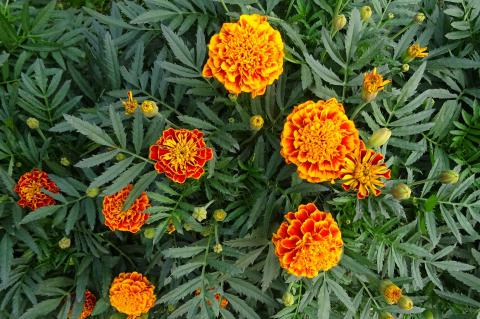
These are the bright orange-colored flowering plant that has time and time stolen the show. If you want to spruce up the look of your garden and offer good growth for your eggplant plant, this is the first one you should consider.
Growing marigold attracts a lot of cross-pollinators, which keeps your eggplant growing sporadically and without any kinds of complications in the process. Not only do they attract pollinators, but marigold also has a very strong scent to it, which is considered effective in keeping the insects out of the close vicinity.
- Oregano

This is a hit or a miss among several growers. You might think that growing oregano is a seamless process but that isn’t the case at all. But, the good thing about growing oregano is that they are amazing insect repellents. From aphids to cabbage moths, they keep a variety of insects out of the vicinity of the eggplant plant.
Also, the strong and herby smell of oregano attracts good and low-maintenance pollinators, which contribute to the growth and proliferation of the plants.
- Spinach

Growing spinach and eggplant side by side have mutually exclusive benefits. The large and tall eggplant leaves provide the spinach with the shade that it needs to grow optimally. On the other hand, the spinach plant is a superfood and restores the lost nutrients in the soil.
This is ideal if you are having a hard time keeping a check on the quality of the soil, especially in the long run. Planting spinach also retains a good amount of soil moisture, which contributes to the growth and proliferation of the plants.
- Nightshades
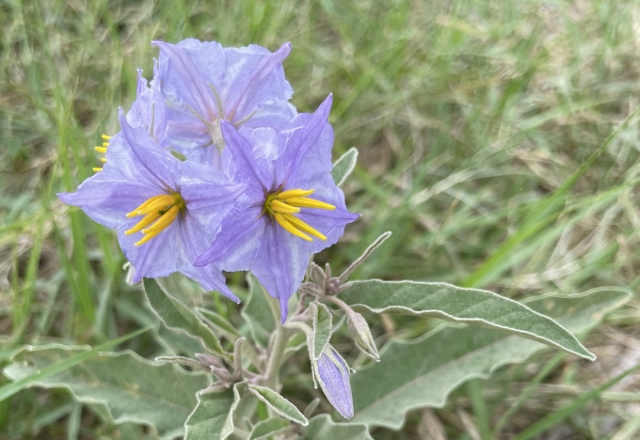
This is hands down one of the most underrated types of companion plants for eggplant. However, it is one of the best in the lot. If you aren’t sure what nightshades are, they include plants like tomatoes, peppers, potatoes, etc.
They are not just easy to grow but they also keep a check on the growth of the eggplants in the close vicinity. Not once will you have to worry about the damaging impacts of the companion plant on the actual plant, which is a benefit.
- Broccoli

If you are finding it hard to keep up with the constantly rising nutrient needs of the eggplant, planting a broccoli plant will take care of that need. They enrich the soil with the necessary level of nutrients that are needed to keep a check on the health of the broccoli and the eggplant that are growing side by side.
Broccoli has soil nutrient-enriching properties, which support the growth of the eggplant tree without any interruptions or damage in the process.
- Kohlrabi
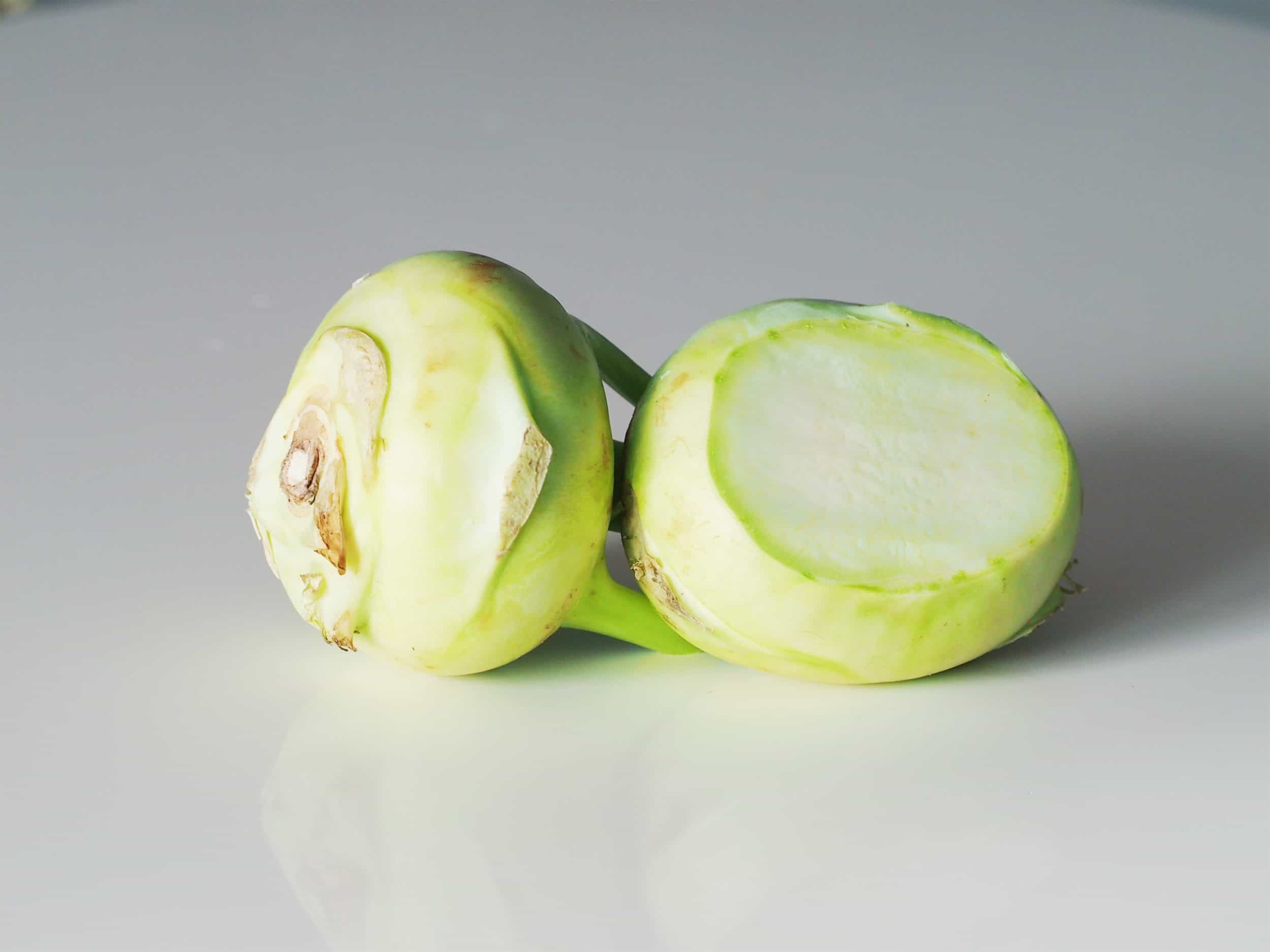
It is another one of the underrated and unheard-of eggplant companion plants but it works like magic, especially if you live in areas where kohlrabi is a common vegetable. The most notable benefit of this plant is in keeping the insects and the pests out of the close vicinity of the eggplant.
Kohlrabi plant can detect pests like aphids, cabbage worms, etc., and keep them out of the close perimeter of the eggplant so it grows optimally and without any unwanted interruptions in the process.
- Pole beans
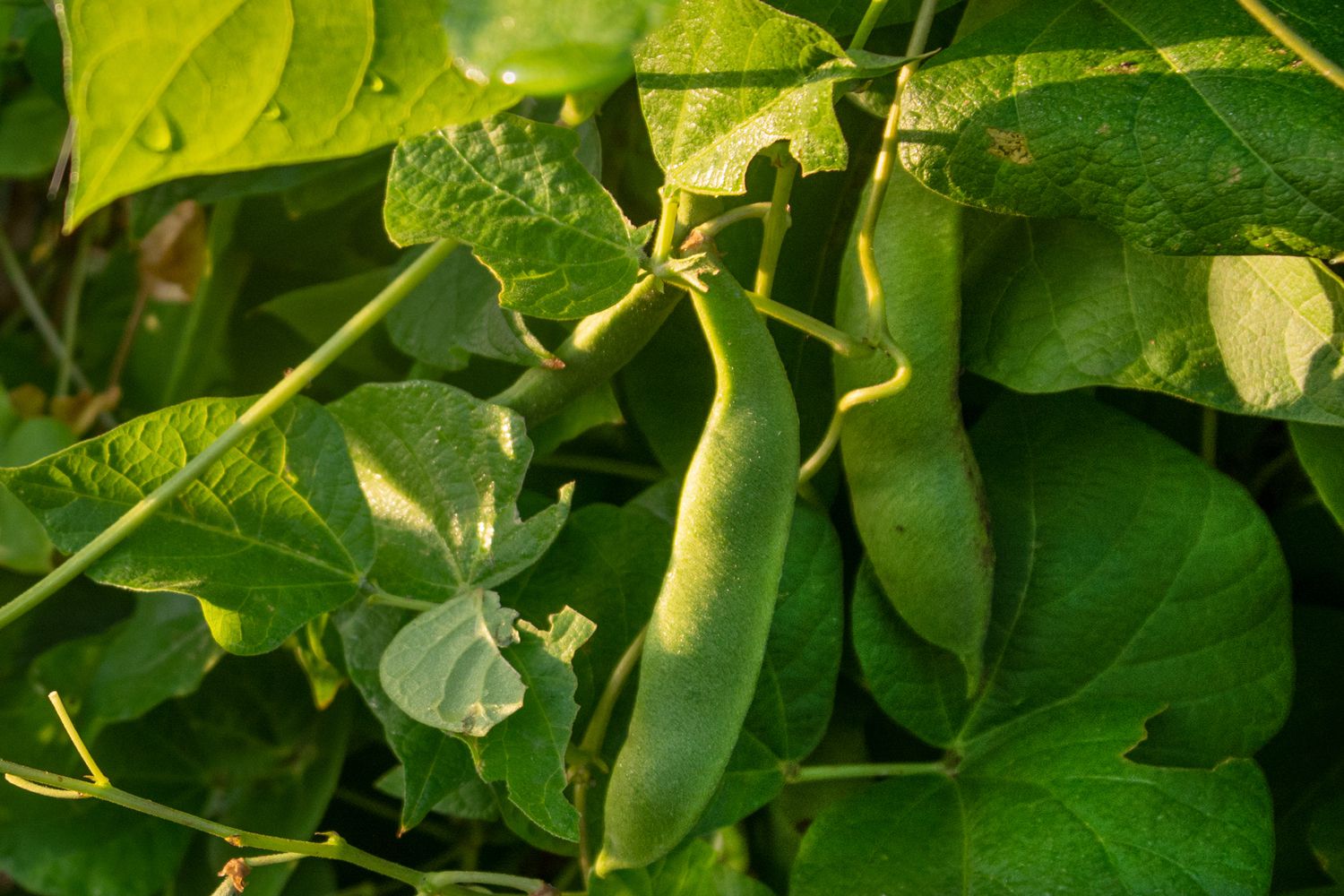
Another nutrient-enriching companion plant that is worth considering is the pole beans plant. If your eggplant isn’t getting enough nitrogen from the soil, Pole beans are ideally the best option that you can look into. Just ensure that you don’t overdo it because too much nitrogen in the soil can have opposite impacts as you’d expect for your eggplant growth and harvest.
- Borage
Unless you are well-versed with gardening, there are high chances that you might not be aware of what borage is. It is a beautiful flowering plant that attracts some of the most crucial cross-pollinators that you’d need for the optimal growth of the neighboring plants, including the eggplant plant.
Not only do they attract the right kind of insects, but borage also has a very strong and pungent smell which keeps a few different types of pests that cause the growth of worms inside the eggplants. You can surround the eggplant with a handful of borage plants for maximum results in the end.
- Nasturtiums
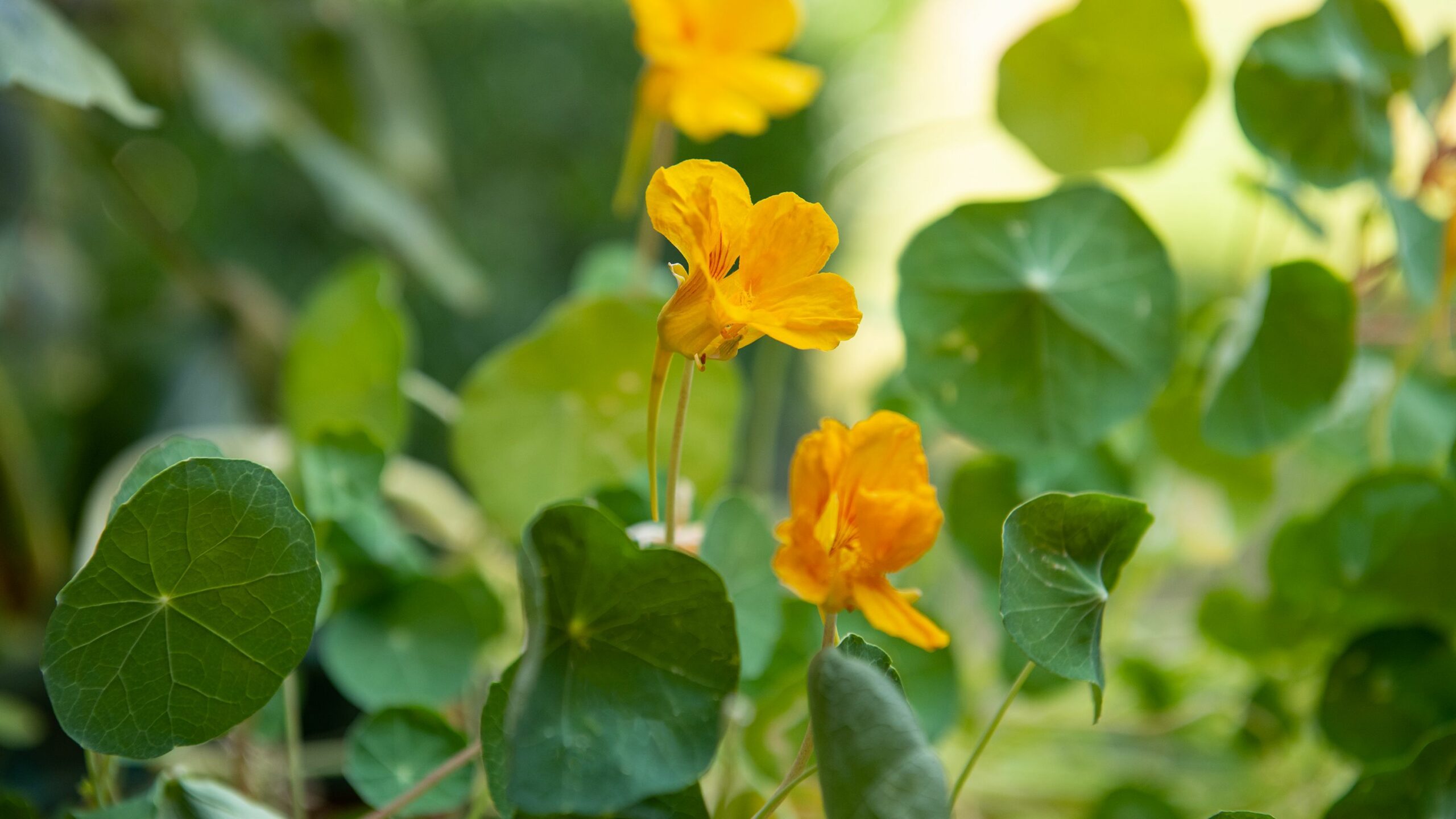
Another popular companion plant that is worth considering is Nasturtiums. They are flowering plants as well, which particularly attract aphids. You might want to be careful with the growth of these plants in the vicinity of the eggplants.
Always keep a few meters distance between to ensure that the attracted aphids don’t end up damaging the eggplant and leading to complications in the end.
- Mint

Both the variants of mint like peppermint and spearmint are considered good companion plants for your eggplant. The strong smell and pungency from the mint keep the occurrence of flea beetles to a bare minimum. You can effectively grow mint for personal use and also to keep the predators out of the close vicinity, all because of the smell.
However, growing mint is quite hectic because it requires a very precise growing environment, temperature, and water. So, be aware of the same if you want to keep them thriving in your garden.
- Scented herbs
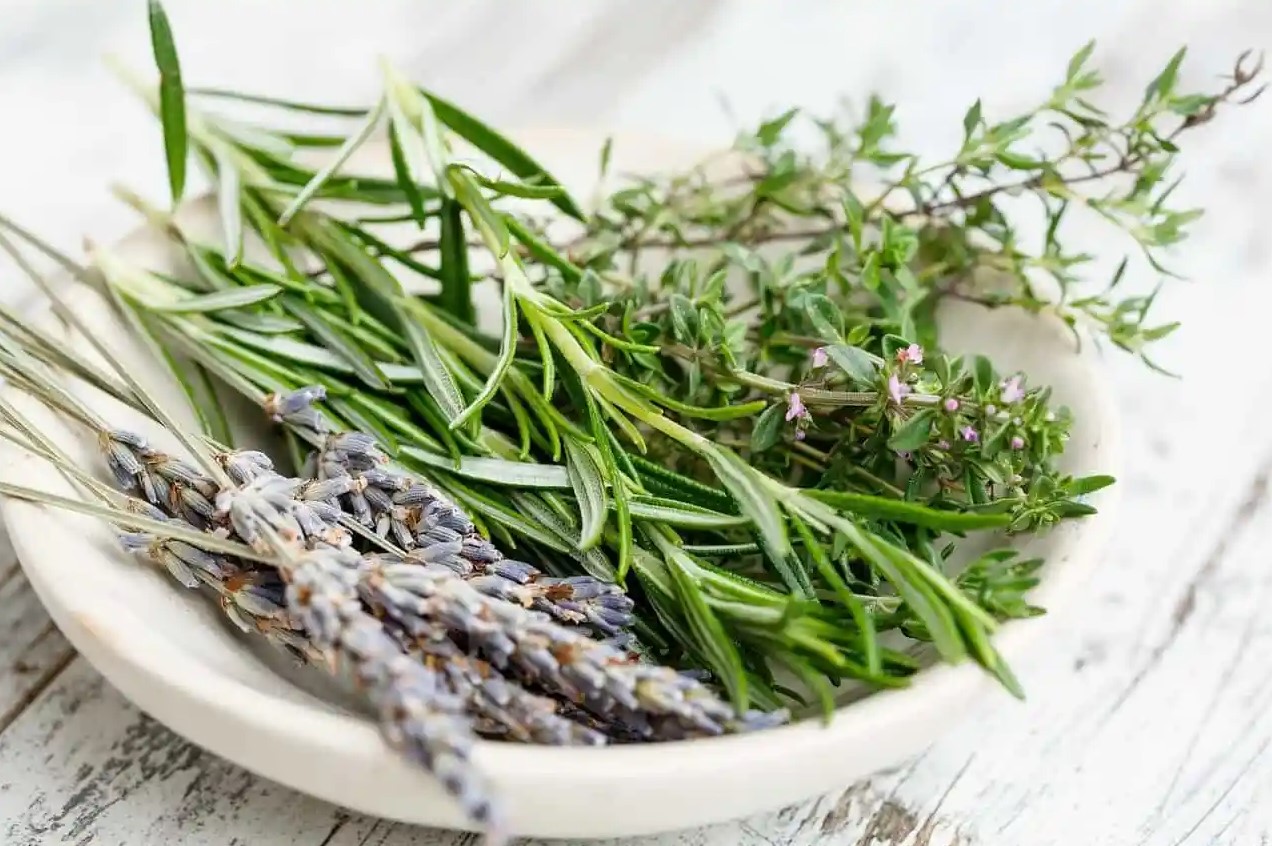
We have mentioned oregano in the beginning but a few different types of herbs like rosemary, chamomile, sage, lavender, etc. are also considered amazing companion plants for eggplant. Catnip also makes a good addition to the list.
However, when you are growing catnip as a companion plant, ensure that you don’t grow plants like peas, beans, etc. in its close vicinity since it will affect their growth quite drastically.
- Amaranth
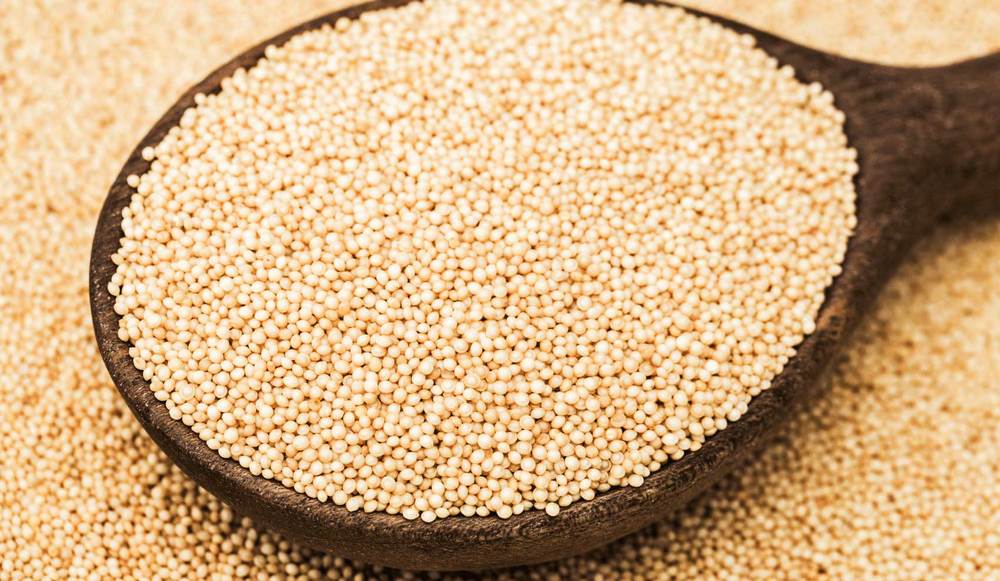
This is another underrated companion plant for eggplants. The reason why Amaranth is considered ideal is due to the similar growing conditions and parameters. You won’t have to worry about overdoing or underdoing anything when it comes to the growth of amaranth and eggplant together.
Just ensure that you space out the plants and don’t grow them nearby. This is because the plants grow quite tall and might find nutrients when they are growing close to each other.
Lentils, peas, and green beans also make good companion plants for your eggplant growth. With so many different options suggested, always pick the options that will thrive in the soil type and climate settings of the place you live in.
Conclusion
If you weren’t aware of companion plants and their significance, we hope this comprehensive post gives you a complete rundown of all the information. Since it is such a crucial part of growing eggplant in your garden, we hope that you find the optimal growing specifications that ensure that your eggplants are devoid of worms and grow to their optimal length and quality.

